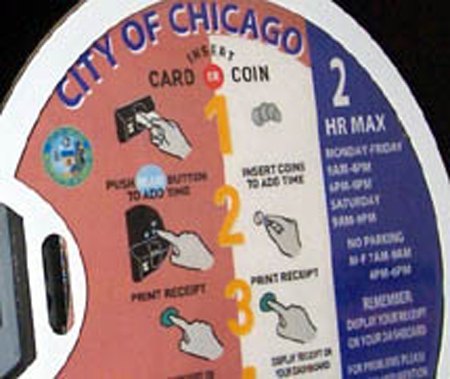Chicago Milks Motorists to Defeat Deficit
Just in time for football season, Chicago’s municipal Revenue Department gives “ticket scalping” a whole new meaning. The Tribune reports that during 2006, the city generated over $210m in fines from traffic and parking citations. That’s almost four years’ worth of Bears ticket sales, and, serendipitously, about equal to the city’s anticipated 2008 budget deficit. In a “sales” performance that would impress even the NFL, parking ticket revenues have soared 60 percent. Since 2000, the number of vehicles getting the (Denver) boot has increased 20 percent. The City also recently invested $1.5m to outfit a brigade of 26 vans with plate-recognition technology to track down additional clamping candidates, while new stop light cameras promise to fatten city coffers by another $17.5m next year. With this blatant money grab intense interest in public safety affixing such a prominent bull’s eye on the wallets of American motorists, one has to wonder what other not-so-hidden driving taxes could possibly be next. Speed cameras? Congestion charges? CO2 taxes? The mind boggles.
More by Jehovah Johnson


































Comments
Join the conversation
I don't have a problem with the enforcement of driving and vehicle laws. What concerns me is the fact that some governments get addicted to the revenue. This becomes a problem when the enforcement works and the quantity of violators drops. The reaction is going to be a scramble to replace the aggregate revenue by (a) increasing the price of violations, (b) looking for new sources of violations. The basic economic forces of supply and demand dictate that as the price of violations increases (the price being the fine and the chance of having to pay it), the "demand" for violations will drop. The mistake of governments is that they assume that "demand" will remain constant, no matter what the price is. If they become super effective at detecting and booting parking violators, then they will find that they will run out of parking violators. Will they earn enough to pay back the vans and plate reading system and still make a profit? If they become super efficient at detecting and ticketing speeding violations, then they will find they people will have to stop speeding. They will have painted themselves into a corner by using public safety as a justification for the hyper-enforcement. They won't be able to reduce the fine without appearing to go soft on dangerous law-breakers. So they are going to be stuck doing things like reducing speed limits in the name of "safety" in the hopes to snare more violators.
A few of my friends have become Chicago cops, and even years before, I could tell you that they are the most easygoing, reasonable officers when it comes to traffic stops. Years before my friends were cops, my dad (god rest his soul) and I were pulled over on the West Side. Cop says, "sir, did you know the entire rear of your car is burned out?" It was--brake lights, turn signals, license plate lights. "I had no idea," my dad replied. "I'll fix it as soon as I get home." The cop said, "Great. Just wanted to let you know. Have a nice night." That's the way cops in Chicago work--they say that they're here to protect people, not to be some junior traffic control division. And they do a fantastic job. I live in the city, and I love the job that our officers do. It's no surprise that my most straight-laced, religious friend became a cop--that's who they attract these days. That star has a nice shine on it that we haven't seen pre-Watergate. So, I just want to say this: Any decision to "milk," which I haven't seen living here 29 years, is based more on need than want. Chicago cops are proud and do the job they were assigned to do. And that doesn't involve ticky-tack traffic bullshit. If they're doing it, it's coming from on high. And we who live her should be ashamed if they're doing it, because there's a lot of other things we should be focusing on.
Buickgrandnational it's not a jab at the cops, it's the city and yes ts all about revenue generation.